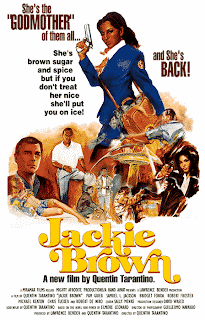Black Dynamite is
a 2009 blaxploitation action/comedy spoof written by and starring Michael Jai
White. Although my knowledge of blaxploitation cinema extends to what little
I’ve picked up during some light reading and watching Jackie Brown, Black Dynamite
is one of the funniest and most enjoyable films I’ve seen in recent years and
I’ve now seen it five times. Black
Dynamite is a pitch perfect pastiche of the genre that it imitates and
takes special care in making sure that the look, direction, acting and mistakes
are done just right. It is a film that I’ve recommended to several people, all
of whom have laughed their way from start to finish and I’d recommend it to
anyone, regardless of age, race or gender.
Black Dynamite (Michael Jai White) is an ex-CIA Agent/Kung
Fu expert who leaves a trail of satisfied women and battered crooks in his
wake. When his brother Jimmy is killed by the mob Black Dynamite goes back into
service to catch his brother’s killers, clean up the streets and generally kick
ass, ya dig? Along the way Black Dynamite gets the help of several members of
the community from Pimps to Black Panther members, seducing and reducing as he
goes.










